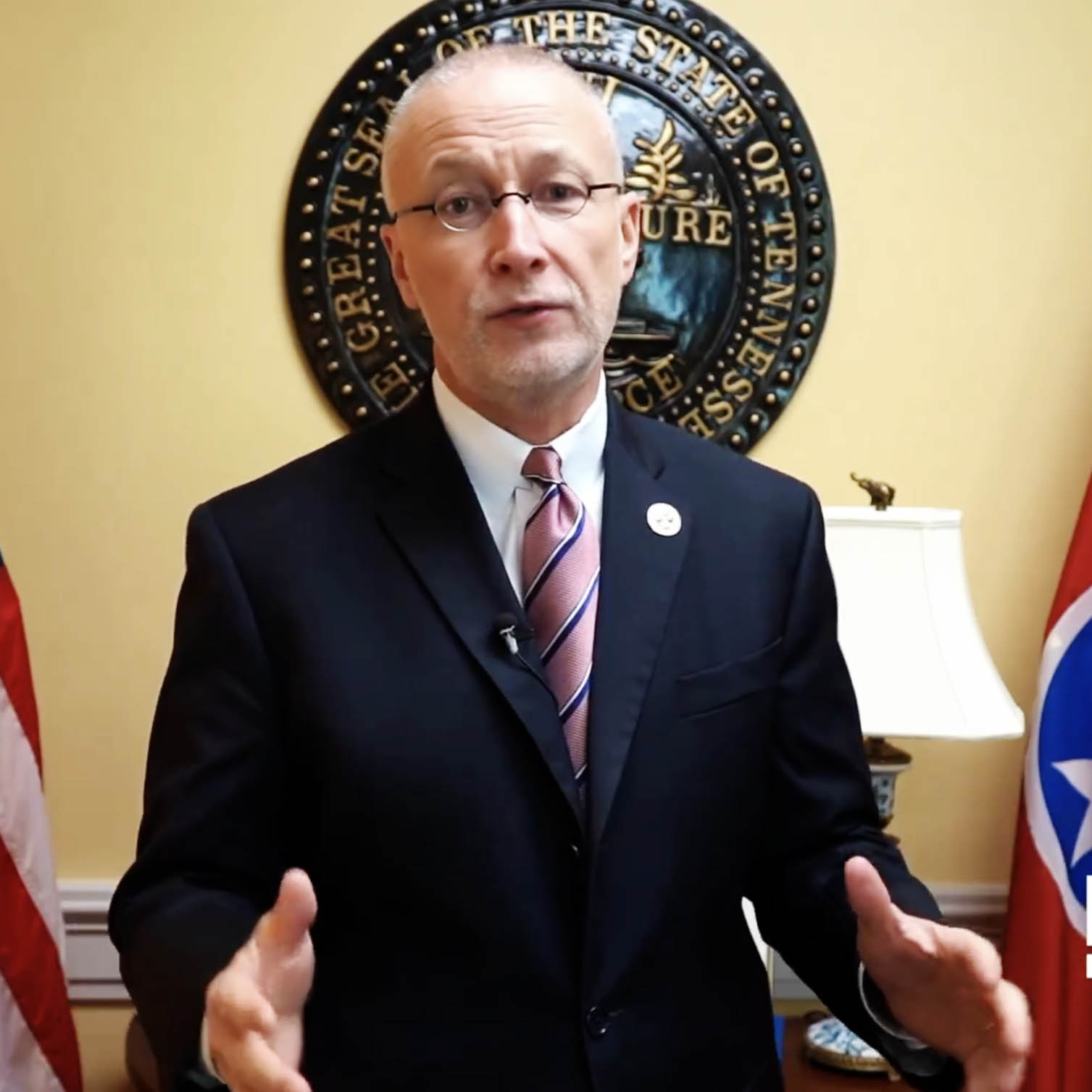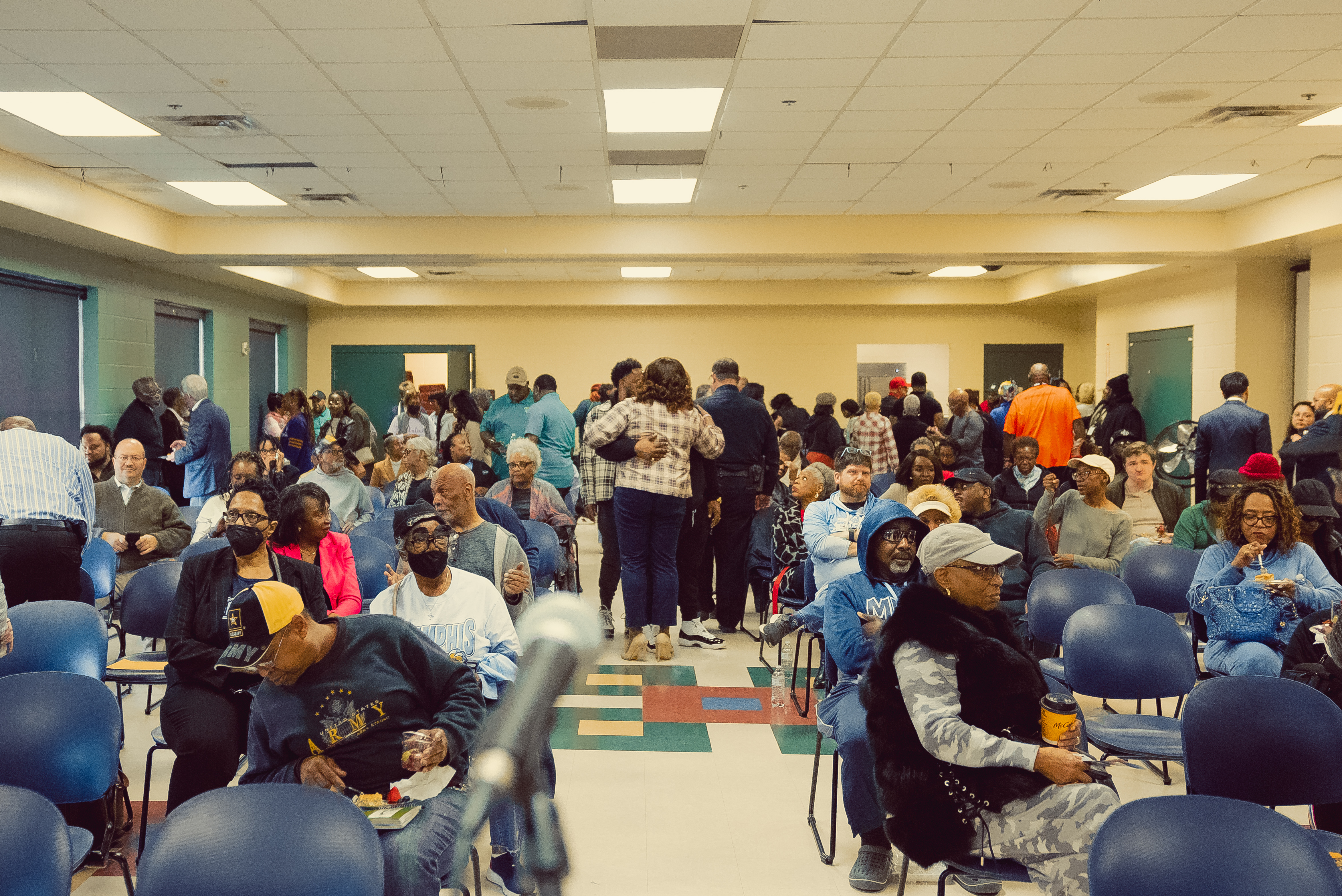Amid the lockdown days and barren streets of the pandemic, violent youth crime fell considerably in Shelby County. From 2019 to 2020, burglaries, robberies and assaults, in particular, were down.
Yet in the years since, the youth crime rate returned to its pre-pandemic level, a predictable bounce back as people returned to life after lockdown.
But that return has been treated as an upward trend and has sent state lawmakers searching for someone to blame. They’ve faulted judges, the bail system and Shelby County’s district attorney.
Now, one proposed law blames parents.
Introduced by Sen. Brent Taylor, R-Memphis, the so-called Parental Accountability Act has cleared the Senate and is working its way through the House. The proposed law would levy a fine as high as $1,000 on the parents of children who commit their second criminal offense, relying on a decades-old belief that the state can protect society from wayward children by penalizing the adults.
It’s an idea that resurfaces whenever politicians need an easy answer to a complex problem that dates back nearly 100 years. Less than a decade ago, many states revisited rules that saddled parents with debts associated with a child’s crimes during a wave of juvenile justice reform.
Tennessee raises tens of millions in revenue every year from criminal fines and fees that entangle people in the legal system. Some lawmakers are eager to add one more fine to the list, while advocates condemn the idea as ineffective.
Taylor said during a committee hearing that he proposed the law after receiving a letter from an unnamed constituent. The message implored him to “get a hold of our youth” and faulted “parents with no parenting skills” for the “serious crime in Shelby County.

“This is designed to reimburse law enforcement and incentivize parents to supervise their children more closely following the first juvenile court appearance,” Taylor said at a February hearing. “If parents are unable to pay this restitution, they can work it off in community service.”
Taylor’s SB 2571 is only one of the latest proposed laws that would ratchet up penalties in the justice system. During a controversial special session last year, Republican lawmakers tried to make it easier to charge young offenders as adults but they were not successful. They argued that the murky crime trends justified sending more children to adult lockups even though the practice has been proven harmful.
Close watchers of the youth justice system say a new penalty would do little except burden families with more fines and fees. Under existing laws, Tennessee parents are already charged for, among other things, court administration, the cost of confinement and a fee for seeking a government-appointed lawyer.
“This is the mindset of retribution, a punitive mindset. The juvenile justice system is about rehabilitation. It’s not about retribution,” said Natalie McKinney, who runs the nonprofit Whole Child Strategies in Memphis and is a member of the Countywide Juvenile Justice Consortium. “All of the laws that are chipping away at the discretion of the juvenile court is largely because of Shelby County trying to do something different.”
Violent crime: narrative versus reality
Republican lawmakers have been on a warpath since the 2021 election that ousted the county’s incumbent juvenile court judge and district attorney, both Republicans, shifting power to reform-minded newcomers, both Democrats. Their discontent with the outcome of the election coincided with the uptick in crime, giving their claim some salience. Through legislation, critics say they’re now trying to circumvent the election results.
“This is not waivable by a juvenile court judge because right now in Shelby County we’ve got a DA and a juvenile court judge who are waiving all kinds of fines and fees,” Taylor said at the February committee hearing but offered no evidence. Attempts to reach him were unsuccessful.
Over the last three years, the narrative of youth crime has been ambiguous.
Even though the jumps in 2021 and 2022, the last year for which data is available, leave the impression that youth crime is rising rapidly, the rate remains below or near the same level as before the pandemic in most counties across the state.
In Shelby County, the overall rate fell from 2019 to 2022, but some offenses like motor vehicle thefts and weapons law violations are surging. The rate of homicides by youth was largely unchanged but trending upward. And minors are committing more crimes with guns than ever during the last two decades.
Still, the criminal offenses of young people account for a small share of the overall adult crime across the state – about 6% in 2022, according to a recent report by the Tennessee Commission on Children and Youth.
Kylie Graves, the commission’s director of policy and legislative affairs, said the frequency of risky behaviors like substance use and crime declined across several categories during the pandemic. But it was an “anomaly in youth behavior,” she said.
“Where we do see a difference is in youth crime with firearms; youth are using firearms with their crimes much more frequently,” Graves said. “I think that can contribute to that feeling that things are getting out of control or feel more prevalent or excessive than what the numbers are showing.”
Speaking at a recent town hall in Whitehaven, District Attorney Steve Mulroy warned an audience that the Republican narrative is different from the reality as some politicians try to discredit his office. Still, Mulroy noted that violent crime is a concern, including the rising number of motor vehicle thefts.
“I understand what it’s like – your car getting broken into a couple times a year [or] your car getting stolen. You don’t feel safe pumping gas; you don’t feel safe on the interstate,” Mulroy told the audience. “It’s absolutely unacceptable, and we need to do everything we can to address that.”
Mulroy appeared skeptical that another fee aimed at parents would move the needle. Prosecutors already have the power to charge adults for contributing to the delinquency of a minor, a misdemeanor under state law.
“I’m not aware of any data that suggests that (a fee) actually does help,” Mulroy said.
Unless there’s evidence of gross negligence where a parent enabled the behavior or had multiple opportunities to intervene, prosecutors run the risk of punishing the poor.
“Sometimes you can’t control a kid despite good faith efforts,” Mulroy said. “The target population is going to be overwhelmingly poor, so are you really helping the situation by further impoverishing them because of the state?”
A cost to ‘society’

It’s not unheard of for adults to face criminal or civil charges for enabling the crimes of children, but it’s rare.
The parents of a school shooter in Michigan are a high-profile example, and they were both recently tried and convicted of manslaughter after a jury found them liable for their teen son’s actions.
But for nearly a century, governments at the state and local level have tried to define and police the role of parents in smaller ways, especially when delinquent behavior increases. That’s what happened in the 1990s when municipalities in California, Oregon and Michigan started imposing fines and fees against the parents of children who broke the law.
Legal scholars started calling them parental responsibility laws. The rationale then and now is that the parents of children involved in the justice system aren’t up to the task, and it’s the state’s role to hold them accountable. Even though juvenile justice advocates say there’s no evidence the statutes work, the idea of parental responsibility endures with supporters to this day.
“This idea that punishment will create deterrence is just not borne out by, I think, any of the data or research about this kind of thing,” said Cardell Orrin, executive director for the nonprofit Stand For Children Tennessee. “I don’t know what to call it – a middle-class, privileged view of family engagement.”
At a March town hall meeting in Hickory Hill hosted by state Sen. London Lamar, D-Memphis, the idea of holding parents accountable was an easy applause line for the audience of about 80 people. Interim Memphis Police Chief Cerelyn “C.J.” Davis spoke of the need to require parenting classes and take the responsibility off the police department.

“We shouldn’t have children in the backseat of our cars in the first place,” Davis said. “We need to work on what this new phenomenon looks like.”
Lamar, who voted to support Taylor’s bill, said the role of parents should be considered in the efforts to reduce crime, even if it’s not the only answer.
“It’s trying to make right the cost that society has to pay for the crime that their child committed,” she said during an interview. “All of that has a cost from the officer to the family or the person that’s impacted to the justice system to be heard,” Lamar said. “Taxpayers have to pay that.”
Being tough on crime isn’t the only way, she said, adding that she has supported laws that would eliminate permitless gun ownership and visual recordings of juvenile interrogations.
“I’m recognizing the factors that contribute to an increase in crime. But also I do recognize that there has to be some penalties for crime as well,” Lamar said. “So it’s not an either-or for me.”
Michael Finch II is the enterprise reporter for MLK50: Justice Through Journalism. Contact him at mike.finch@mlk50.com
This story is brought to you by MLK50: Justice Through Journalism, a nonprofit newsroom focused on poverty, power and policy in Memphis. Support independent journalism by making a tax-deductible donation today. MLK50 is also supported by these generous donors.

